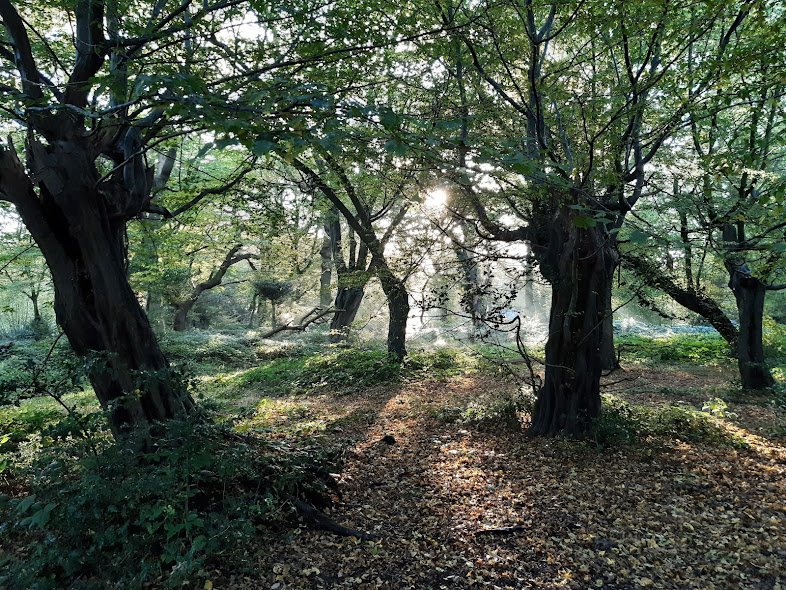By Sarah Frost:
The sea is noiseless tonight,
crickets creak a quiet refrain.
Somewhere in the valley
an owl calls for something he lost.
A snake glides across the black river,
slides into a waiting tree.
Behind him water furrows in mushroom folds,
soft as the forest floor.
***
Cuttlefish clouds shear the salmon sky,
wind exfoliates the beach.
Full of blue motion, waves compete for the shoreline
where a jelly fish lolls, like a severed head.
In the mountain shadow, there is no wind.
From a rockface, a lone flower extends
over a dark pool, orange fire.
Nothing disturbs the milky foam’s calligraphy.
Lost in branches the loerie hops,
his tail feathering bronze as a cormorant
diving into the gale-rimmed sea,
a body visible, then not.
***
Under the sea-slicked sand
where finger plough snails sail across the wet
on creased oval feet,
the sand clam burrows,
ligamented halves clasped tight.
At the backline white stallions roar,
siring tsunami foals –
but it is quiet here in the littoral
where layered waves mantle in the swash.
In the shallows’ ebb and flow
I bend to touch a snail’s proboscis.
Boldly he probes the foam,
sniffs ozone heady as a drug.
Under us, the sand mussel clenches,
siphoning water through her secret straws.
A knife of gulls prises whelk-clouds open
pearly sponges, dripping light.
***
Where sea shallows meet sand, salps,
small blobs of ointment on shore scraped raw by the sea.
Stretching spinal, their line hooks a plunder of plough snails.
Unphased by relentless wash of waves
and wind funneling from the dunes,
these see-through crescent moons bloom
an axis of notochords threading clear as water,
a broken jellyfish splatter, gelatinous diamonds,
strange viscous secretions, singular and many,
like daubs of clear silicon, gluing me
to the backbone of the world, its animal tides.
***
At the lagoon’s edge, I held her on my hip,
our heads leaning in, river stones.
Suddenly, I saw not what my daughter saw
but how she saw; the morning leaping,
a silver fish, from hills cupped like hands
to catch fern green water, a forever of trees.
Diamond air danced as laughing,
she reached for my sunglasses,
inviting me to look through them with her.
My feet sank heavy into the wet estuary.
Her touch at my neck was a dune breeze.
Child time, sage as the sea pumpkin’s shade,
turned her sky blue gaze
to polaroid gauze, intensifying light.
***
Like broadband, the waves graph a beachy spectrum,
static hum sounding through sonic boom.
Three cormorants fly in a faithful motif
familiar as the jut of headland into the current.
A Tabard -green sea rolls in from the deep,
clear as an eye.
It blinks at the sun trawling ultramarine,
oyster catchers’ beaks red javelins.
This ocean churns with sidewash, backwash,
spindrift stitching swathes as if mending a tear,
I navigate a path over the crags to the gulley,
where the secret daisies grow.
As if binding lovers in a handfasting,
incoming waters grasp the gulley’s rocky wrist,
tie it to sand bare as a promise.
*
About Sarah:
Sarah Frost is 48 years old and mother to a 17 year old boy, and an eight year girl. She works as an online editor for Juta Legalbrief in Durban, South Africa. Sarah has been writing poetry since she was 19 years old. She has completed an MA in English Literature at UKZN and achieved a first class pass in a module in Online Poetry at Wits University. She won the Temenos prize for mystical poetry in the McGregor Poetry Competition in 2021. Her debut collection, Conduit, was published by Modjaji in 2011. She is currently fine-tuning a second manuscript, The Past, which she hopes to publish soon.

















